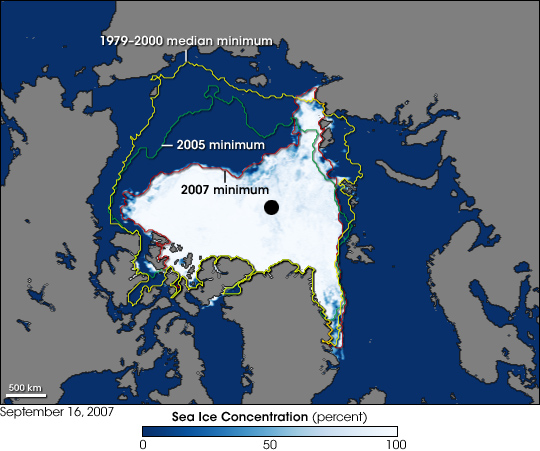 (Photo by NASA/JPL-Caltech, from Wikimedia Commons.)
20% from WATER
Hydro (no new big dams), Wave/Tide/Current, OTEC, Hydrogen
(Photo by NASA/JPL-Caltech, from Wikimedia Commons.)
20% from WATER
Hydro (no new big dams), Wave/Tide/Current, OTEC, Hydrogen
 (Photo by Lars Lentz, from Wikimedia Commons.)
5% from Biofuels
from Algae & inedible plant parts (none from corn)
(Photo by Lars Lentz, from Wikimedia Commons.)
5% from Biofuels
from Algae & inedible plant parts (none from corn)
 (Photo by NEON, from Wikimedia Commons.)
11% Enhanced Geothermal
(Photo by NEON, from Wikimedia Commons.)
11% Enhanced Geothermal
 (Photo by Wolfgang Beyer, from Wikimedia Commons.)
(Photo by Wolfgang Beyer, from Wikimedia Commons.)
 (methane hydrate photo from the U.S. Department of Energy.)
5% from Waste
(methane hydrate photo from the U.S. Department of Energy.)
5% from Waste
 (Photo of a Waste-to-Energy Plant by by Gralo from Wikimedia Commons.)
(Photo of a Waste-to-Energy Plant by by Gralo from Wikimedia Commons.)
 (Photo by NASA, from Wikimedia Commons.)
(Photo by NASA, from Wikimedia Commons.)
well-informed, diverse members of society eagerly cooperating with bold, sagacious, unbiased leaders, who will not tolerate Enron-like emperors with no clothes, useful idiots or a conspiracy of fools (anyone so inclined is asked to kindly step aside).
 (Photo by Alvesgaspar, from Wikimedia Commons.)
(Photo by Alvesgaspar, from Wikimedia Commons.)
"World oil production peaked in 2005. Despite growing demand and an unprecedented increase in prices, oil production has fallen over the last three years. Oil is getting more expensive to produce, harder to find and there just isn't enough of it to keep up with demand.
The simple truth is that cheap and easy oil is gone."
Besides, you don't have to be smarter than a 5th grader to figure out that drilling for new oil will take too long. By the time the 'new' oil reaches the pump, we will need to have kicked our oil habit and converted our autos to engines that do not run on gasoline, not falling off the clean, sober and profitable renewable energy wagon. Even if we have not entirely weaned ourselves from it, drilling will not cause prices to go down because the exploding demand, especially in fast growing countries, "is overwhelming the rate of new discoveries by so much that oil prices are almost certain to continue upward over time no matter what the oil companies promise" (Gore, 07/17/08). Moreover, an extremely effective way to bring prices down within a few short years exists: END our oil dependence by switching to renewable energy that "can give us the equivalent of $1 per gallon gasoline" (Gore, 07/17/08). We must change the policies and practices that have produced "the highest gasoline prices in history alongside the greatest oil company profits in history (Gore, 07/17/08). The $1 Trillion per year we spend for oil is only the tip of the iceberg. All oil-derived products require refining and distribution, which adds another 30% or more to their costs and more pollution to the Earth. What's worse, our fossil fuel use worsens the worst of all our woes. Our national carbon emissions destabilize the climate and use of carbon fuels and products degrades the environmental. Our carbon-fuel policies, practices, and use exacerbates under and unemployment, the trade deficit, the federal debt, the devaluation of the US$, health problems such as asthma, cancer and a host of other serious conditions caused and/or made worse by fossil fuel pollution, reduced productivity, etc. The list goes on and on and on. The cost is absurd because all evidence suggests our fossil fuel use could very well cause not just the end of the United States of America, but also threatens to make our species go the way of the dinosaurs. Thus, the real cost of gas once all factors are considered, is probably more than $100 per gallon right now. That is, $3-5 for the gas, and another uncountable amount in costs passed on to third parties (taxpayers, future generations and people in other countries) and the Earth. All the while, oil companies, who are not paying their fair share of these costs, make record profits. Such a gross market failure threatens capitalism and the entire world. Indeed, low gas prices only keep us steeped in the sickening Texas Tea. Those who push for lower prices by painting the oil companies as the bad guys are like heroin addicts blaming their pushers, while pushing needles into their own arms, while demanding a topical anesthetic to make the needle less painful. All the pushing, pumping and using must end. Making the heroin cheaper and easier to use will only make matters worse. Naturally, we addicts do not want to hear this and might not be able to hear it, thus we need plug-in (methadone) cars instead of pump-addicted (heroine) cars. Yes, let's make & buy cars that plug in at home and recharge overnight during non-peak hours while most folks are sleeping. Imagine, never having to go to the pump again! We need to aim for NO gas prices, not LOW gas prices. We need to transform 'at the store' price of all oil-based products to make their producers and users pay all costs associated with their production and use. Transforming the price can be accomplished through a combination of market-correcting supplemental charges for oil-based products, pollution reduction incentives and pollution production disincentives. In other words, we need to "tax what we burn, not what we earn!" This will not be an overall tax increase, instead, it's a tax shift. Most economist and experts agree that we need to do this, even Gregory Mankiw, economist and former chairman of President Bush's Council of Economic Advisors. Fossil fuel taxes will make it appear as if fossil fuel prices are increasing, however, they would really just make existing costs more apparent so consumers would see "20/20" what we have been paying all along. Transforming the prices would actually decrease the total cost we pay for our use. It will turn national fat into muscle. Muscle weighs more than fat, yet it is much stronger. Currently, allowing the distorted pricing creates fat and burdens not just our health, but also our economic and environmental systems. Making fossil fuels prices reflect their actual cost will burn fat into muscle, making all citizens healthier, wealthier and wiser. As fossil fuel prices start to reflect their true costs, more of us will think thrice before using fossil fuels, and it will be easier to switch to renewable energy. Although swallowing our medicine will be hard at first, the faster we switch, the easier it will be and the sooner we will benefit. In addition to improving our health, safety and environment, switching will create good jobs. The resulting increased home and clean auto purchases will stimulate the economy. We need not wait for the new administration to improve our standard of living; we can create cleaner better energy now. We can decrease our fossil fuel use now. All the same, come November, we need to select leaders who will transform fossil fuel prices via net-neutral, market-correcting surcharges (i.e., taxes; see below). Making the real cost of these fuels apparent will decrease demand. As we recover from our oil dependence and make more clean home grown energy, prices for fossil fuels should remain reasonably steady because if they get too high, it will just increase the rate at which we switch (and start exporting oil at the increased prices). Part of the thinking is that if a product causes several big problems, it is only fair that whoever uses it should also help fix them. At the same time, since nearly all of us use the product in question, it would be tough to swallow the pill we need if product prices go up all at once, with no sugar to help make the medicine go down. Thus, we need to find, "the most delightful way" to offset the market-correcting fossil fuel tax that we need to self-impose. This is not a partisan issue, nor is it about tax and spend or anything like that. We are already spending. We need to tax in order to save ourselves, future generations and the world (consider contacting your representatives to let them know you support fossil fuel tax increases if they are offset by tax decreases elsewhere). Since making labor in the USA more affordable (so that US employers could better afford to hire US employees instead of sending jobs abroad), perhaps we could best offset the needed fossil fuel taxes by eliminating all (yes, all) income-based taxes on the first $100,000 of a family's income. This would have the added advantage of saving trees and reducing all the trouble and time tax time causes so many people. "Cap and trade" plans might sound good, yet will not be needed if we just keep things simple and tax fossil fuel use. At the same time, we should provide tax credits to individuals and businesses that retire fossil fuel-guzzling equipment and vehicles. In addition to neutralizing taxes, we also must neutralize subsidies. We must end "every bridge to nowhere" (Gringrich); end all subsidies to non-sustainable industries and practices (including mono-cropping) and invest the savings into sustainable practices, products and services until they secure their place in the market (yet not beyond that). Gingrich's suggestion of a $1 billion prize for one breakthrough is interesting. Perhaps that is a little much for one field (why put so many eggs in one basket?), yet why not a competition, with 100 or so $10 million prizes for the best in each of 100 (or so) categories (including the best new US energy plan)?
Accelerate Energy Use in Fast Growing Countries
 (Image by a work of the United States Federal Government, from Wikimedia Commons.)
(Image by a work of the United States Federal Government, from Wikimedia Commons.)
 or even triple today if the full ecological costs (including fossil fuel use, groundwater depletion and agricultural-chemical pollution) were factored into their prices. Since we and future generations are already paying these hidden prices, we must raise and eat less meat (especially beef). Consider, in Maryland, chickens outnumber humans nearly 60 to 1! Additionally, according to the USDA, animals in the US meat industry make 61 million tons of waste a year (130 times the annual volume of human waste). Surely, instead of letting the animals take over, each meat-eater in the USA could eat a little less meat.
It takes 500 or 2,500 gallons of water to produce a pound of beef in the U.S. (depending upon who does the math), so now that a devastating drought has returned to Dust Bowl country, it is an especially good time to slow our meat production and consumption. Since the fall 2007, drought has been creeping up on the High Plains of northeastern New Mexico, southeastern Colorado, southwestern Kansas, the Oklahoma Panhandle, and northern Texas. The U.S. government recently declared 9 counties in western Oklahoma “primary natural disaster areas.” More than sixty bordering counties in Colorado, Kansas, Missouri, Arkansas, Texas, and New Mexico are eligible for disaster relief under the declaration. The declaration may also allow tax breaks for ranchers forced to sell their herds (see: Devastating Drought Settles on the High Plains).
In addition to offsetting CO2 emissions by improving agricultural practices, we need to help end deforestation and plant more trees.
or even triple today if the full ecological costs (including fossil fuel use, groundwater depletion and agricultural-chemical pollution) were factored into their prices. Since we and future generations are already paying these hidden prices, we must raise and eat less meat (especially beef). Consider, in Maryland, chickens outnumber humans nearly 60 to 1! Additionally, according to the USDA, animals in the US meat industry make 61 million tons of waste a year (130 times the annual volume of human waste). Surely, instead of letting the animals take over, each meat-eater in the USA could eat a little less meat.
It takes 500 or 2,500 gallons of water to produce a pound of beef in the U.S. (depending upon who does the math), so now that a devastating drought has returned to Dust Bowl country, it is an especially good time to slow our meat production and consumption. Since the fall 2007, drought has been creeping up on the High Plains of northeastern New Mexico, southeastern Colorado, southwestern Kansas, the Oklahoma Panhandle, and northern Texas. The U.S. government recently declared 9 counties in western Oklahoma “primary natural disaster areas.” More than sixty bordering counties in Colorado, Kansas, Missouri, Arkansas, Texas, and New Mexico are eligible for disaster relief under the declaration. The declaration may also allow tax breaks for ranchers forced to sell their herds (see: Devastating Drought Settles on the High Plains).
In addition to offsetting CO2 emissions by improving agricultural practices, we need to help end deforestation and plant more trees.  From now until 2010, in concert with the U.N. Environment Programme and Nobel Peace Prize Laureate Wangari Maathai, we ought to plant one tree for every person on the globe. A tall order? Not really. By mid-2008, over 2 billion trees had been planted in more than 150 countries. People in Ethiopia planted 700 million trees; folks in Turkey, 400 million; in Mexico, 250 million. In a single day, the state of Uttar Pradesh in India mobilized the planting of 10.5 million trees (see Time for Plan B, page 7 FMI).
Transforming our food production and consumption practices will help end deforestation in other countries. (see Earth Observatory's "Tropical Deforestation" FMI on disappearing forests). As it stands now, in addition to increasing CO2 emissions and causing all sort of domestic health problems, corn-feed beef consumption in the U.S. encourages deforestation around the globe. As of 2007, we were importing 2.5 million head a year (we consumed over 28 billion pounds in 2007!). And, all those cows use a lot of land and emit a lot of CO2. Thus, we probably ought to also transform beef and other meat prices sometime before 2020 as well.
As Noble Peace Prize Laurete Al Gore points out, "our dangerous over-reliance on carbon-based fuels is at the core of all" of our "economic, environmental and national security crises." To the lament that we are "borrowing money from China to buy oil from the Persian Gulf to burn it in ways that destroy the planet" he explains we are holding the solution to all these problems in our own hands. Ironic in its simplicity, the solution "is to end our reliance on carbon-based fuels." His vision and passion inspired the sUSAn plan which, taking his challenge seriously, similarly seeks to help Save USa Now.
From now until 2010, in concert with the U.N. Environment Programme and Nobel Peace Prize Laureate Wangari Maathai, we ought to plant one tree for every person on the globe. A tall order? Not really. By mid-2008, over 2 billion trees had been planted in more than 150 countries. People in Ethiopia planted 700 million trees; folks in Turkey, 400 million; in Mexico, 250 million. In a single day, the state of Uttar Pradesh in India mobilized the planting of 10.5 million trees (see Time for Plan B, page 7 FMI).
Transforming our food production and consumption practices will help end deforestation in other countries. (see Earth Observatory's "Tropical Deforestation" FMI on disappearing forests). As it stands now, in addition to increasing CO2 emissions and causing all sort of domestic health problems, corn-feed beef consumption in the U.S. encourages deforestation around the globe. As of 2007, we were importing 2.5 million head a year (we consumed over 28 billion pounds in 2007!). And, all those cows use a lot of land and emit a lot of CO2. Thus, we probably ought to also transform beef and other meat prices sometime before 2020 as well.
As Noble Peace Prize Laurete Al Gore points out, "our dangerous over-reliance on carbon-based fuels is at the core of all" of our "economic, environmental and national security crises." To the lament that we are "borrowing money from China to buy oil from the Persian Gulf to burn it in ways that destroy the planet" he explains we are holding the solution to all these problems in our own hands. Ironic in its simplicity, the solution "is to end our reliance on carbon-based fuels." His vision and passion inspired the sUSAn plan which, taking his challenge seriously, similarly seeks to help Save USa Now.






